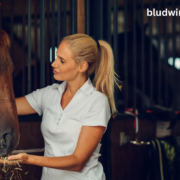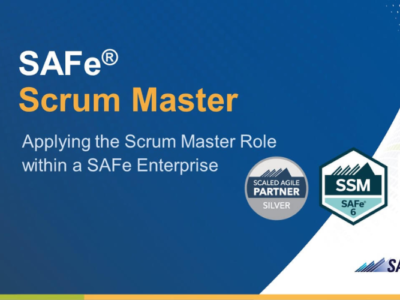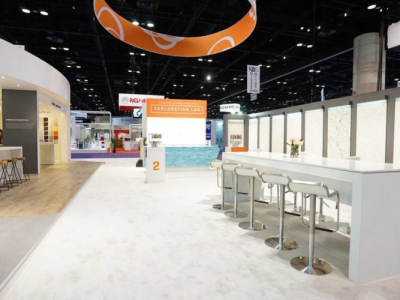Alcohol has long been intertwined with social gatherings, celebrations, and even moments of relaxation. Since moderate alcohol consumption is needed for a balanced lifestyle, you must be able to maintain a healthy and responsible relationship with it. However, for many individuals, navigating the relationship with alcohol can prove challenging. So what can we use to balance things out? Psychology!
Understanding the psychological dynamics that influence our interactions with alcohol is crucial in overcoming alcohol dependency and fostering a healthier lifestyle. This psychological approach may involve exploring the depths of our thoughts, emotions, and behaviors when we are around alcohol. We can use this approach to develop insights that will pave the way for positive change in our habit of drinking.
In this article, we will delve into the world of psychology to uncover ten proven approaches that can help cultivate a healthier relationship with alcohol. These approaches draw from mindfulness, self-reflection, emotional awareness, and effective coping strategies. By adopting these techniques, individuals can better understand their motivations, triggers, and patterns of alcohol consumption.
To embark on this journey, you will need introspection, openness to change, and a commitment to personal growth. The insights gained from these psychological approaches can empower individuals to make conscious choices, set clear boundaries, and develop sustainable habits surrounding alcohol. Let’s get into the approaches!
Psychological Approaches for Healthier Alcohol Consumption
-
Mindful Awareness
Incorporating mindful awareness into your approach to alcohol consumption control is an invitation to embrace the present moment. By observing and accepting your thoughts and emotions without judgment, you can gain a deeper understanding of your drinking patterns and the impact alcohol has on your physical and mental well-being. This heightened awareness empowers you to make conscious choices, minimizing impulsive or excessive drinking tendencies. By practicing mindfulness, you can develop a more intimate connection with yourself and the effects of alcohol, allowing you to navigate your relationship with it more responsibly.
-
Purposeful Boundaries By Setting Clear Intentions
When you set clear intentions for your alcohol consumption, you’re embarking on a path of self-empowerment. When setting your intentions, take a moment to reflect on the reasons you choose to drink and the role alcohol plays in your life. By defining specific goals and limits, such as embracing moderation or incorporating alcohol-free days, you can establish a purposeful framework for your relationship with alcohol. This intentional clarity helps people to approach alcohol with control and mindfulness, ensuring that it aligns with their values and overall well-being. Through the power of setting clear intentions, you can create a healthier and more harmonious partnership with alcohol.
-
Navigating Emotional Triggers
Your emotional landscape can heavily influence your relationship with alcohol. Recognizing and understanding emotional triggers, whether they stem from stress, loneliness, or boredom, empowers you to seek healthier coping mechanisms. Rather than turning to alcohol, you can explore alternative outlets for emotional well-being, such as engaging in physical exercise, practicing meditation, or nurturing connections with loved ones. By identifying and addressing these emotional triggers, you can cultivate a more balanced and sustainable approach to managing your emotions, reducing the reliance on alcohol as a means of escape or self-medication. This shift opens up possibilities for personal growth, increased resilience, and the development of healthier coping strategies.
-
Practice Delayed Gratification
Alcohol is often associated with instant gratification. However, practicing delayed gratification can build resilience and self-control. Setting short-term and long-term goals related to alcohol consumption and rewarding oneself for achieving those goals can help break impulsive habits of drinking and promote healthier habits.
-
Nurturing Resilience through Effective Stress Management
Stress often acts as a catalyst for excessive alcohol consumption, but there are healthier alternatives for managing stress. Cultivating effective stress management techniques becomes paramount in reducing the inclination to rely on alcohol as a coping mechanism. Embracing practices like deep breathing exercises, journaling, or seeking support from Alcohol apps and professionals can equip you with invaluable tools to navigate stress in a constructive manner. By developing these techniques, you will foster resilience and empower yourself to face challenges head-on, diminishing the need for alcohol as a temporary escape. As you embrace healthier stress management strategies, you open doors to enhanced well-being, greater emotional balance, and a more harmonious relationship with alcohol.
-
Seek Social Support
Building a strong support network is crucial in cultivating a healthier relationship with alcohol. Surround yourself with individuals who support your goals and understand the importance of responsible drinking. If you can’t find support groups around, you can turn to moderate drinking apps like Sunnyside App or any other Apps out there. The Sunnyside App has many features besides support groups, like the drink counter that can help keep track of drinking.
-
Create a Positive Environment
Ensure your physical and social environments are conducive to a healthy relationship with alcohol. Avoid keeping excessive amounts of alcohol at home, remove triggers that may promote excessive drinking, and establish boundaries that support your goals. Surround yourself with positive influences and engage in activities that do not revolve solely around alcohol.
-
Engage in Self-Reflection
Regular self-reflection is essential in understanding the underlying reasons behind your drinking habits. Examine your values, belief systems, and past experiences with alcohol. Identify any negative patterns or self-destructive behaviors that can revert your progress and focus on developing behaviors that enhance personal growth and empower you to make more informed choices.
-
Seek Professional Help
If you find it challenging to maintain a healthy relationship with alcohol despite your best efforts, seeking a professional’s help, such as a therapist or counselor specializing in addiction, can be wise.
Additionally, utilizing a mindful drinking app can complement your journey by providing valuable tools, resources, and support to help you navigate your relationship with alcohol successfully. These apps often offer features like tracking your alcohol consumption, setting goals, providing educational content, and connecting you with a community of like-minded individuals who are also focused on mindful drinking. By combining professional guidance with the assistance of a mindful drinking app, you can enhance your efforts towards a healthier and more balanced approach to alcohol consumption.
-
Celebrate Progress, Not Perfection
Remember that achieving a healthier relationship with alcohol is a journey, and setbacks may occur. Focus on your progress rather than perfection. Celebrate the small victories as you progress. Acknowledge and appreciate your positive changes, and be kind to yourself throughout the process.
Conclusion
Following these 10 psychological approaches, you can control your drinking habit and develop a healthier relationship with alcohol. Embrace the power within you to make positive changes and embark on a healthier, more mindful connection with alcohol.

















Comments